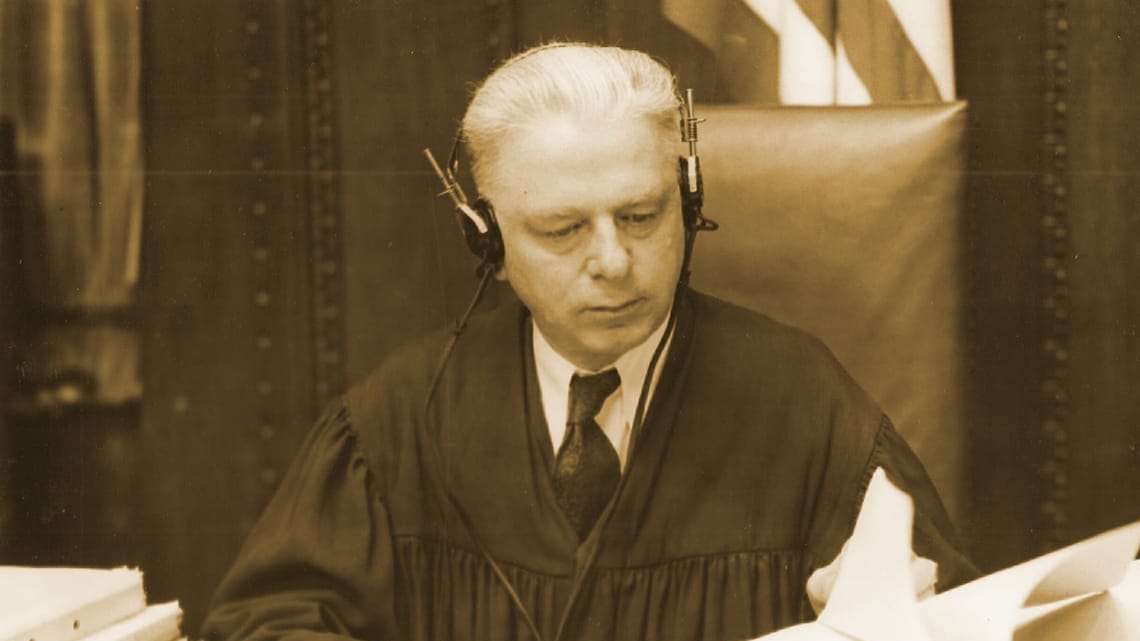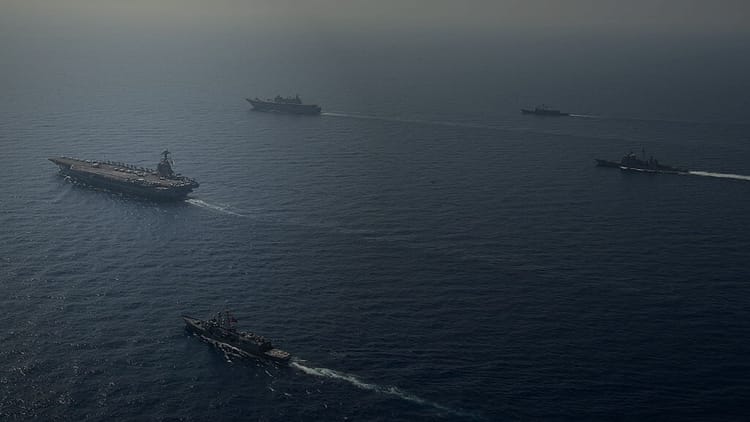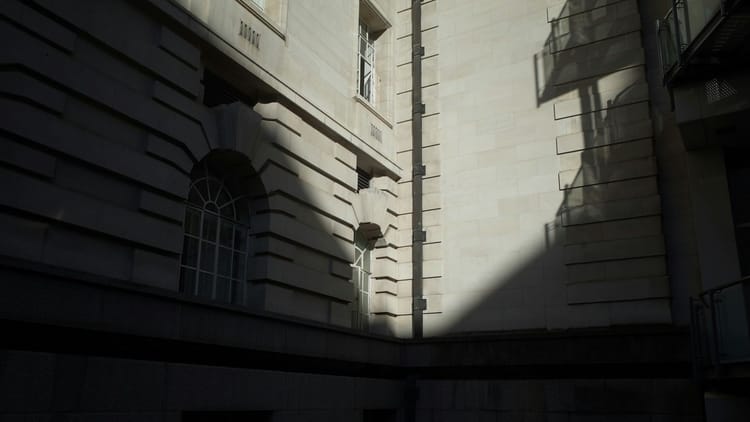Twenty minus one

Recently: Ukraine’s ultimatum: six days to accept territorial concessions or lose U.S. support. Russian drones violate NATO airspace. The last U.S.-Russia nuclear arms treaty expires in 75 days, and no one’s negotiating a replacement. Now what?
Today: The first G20 summit in Africa goes ahead without the United States. South Africa’s Ramaphosa adopts a declaration Washington opposes. What happens when the rest of the world resolves to routing around American objections?
+ For members: Why is Washington claiming a new legal authority to strike Venezuela—and sanctioning the International Criminal Court for issuing arrest warrants over Gaza? Yuan Yi Zhu on how democratic countries are responding to expansive rulings by international courts.
& New music from Robyn ...
The empty chair
The first G20 summit held on African soil ended on Sunday with South African President Cyril Ramaphosa banging a ceremonial gavel—and handing it to an empty chair.
The United States boycotted the two days of talks in Johannesburg, meaning the world’s biggest economy was absent from a summit meant to bring wealthy and developing nations together. U.S. President Donald Trump cited widely discredited claims that Ramaphosa’s government is pursuing racist anti-white policies against the country’s Afrikaner white minority. Argentina’s Javier Milei joined the boycott in solidarity with the U.S.
The summit broke with tradition in two directions. Leaders issued a 122-point declaration on the opening day—when declarations usually come at the summit’s close—after drafting it without American input. The U.S. had demanded that the summit issue no declaration; a White House official called proceeding without Washington “shameful.” The declaration stressed climate change, renewable-energy targets, and debt relief for poor countries—all frameworks the Trump administration dislikes.
The US asked at the eleventh hour to send a chargé d’affaires to accept the handover. Ramaphosa refused—on the grounds that by protocol, a head of state doesn’t pass the gavel to a junior embassy official.
Canada’s Prime Minister Mark Carney described the moment bluntly: “The world can move on without the United States.” Countries representing three-quarters of the world’s population, two-thirds of global GDP, and three-quarters of world trade participated—and reached consensus anyway. The question now: what if anything this ends up meaning for American influence over forums like the G20 and the follow-through actions of their member states.

Meanwhile
- Two indictments tossed in Virginia. On Monday, a U.S. federal judge threw out indictments against the former Federal Bureau of Investigation director James Comey and New York Attorney General Letitia James, ruling that Lindsey Halligan—the acting U.S. attorney who secured them—lacked lawful authority. Halligan, a former Trump personal lawyer, took the post after the president ousted her predecessor for declining to prosecute the cases. The administration plans to appeal. Separately, the Pentagon opened an investigation into Senator Mark Kelly, a retired Navy captain, after he appeared in a video urging troops to refuse illegal orders. Trump has accused Kelly and other legislators appearing in the video of sedition, “punishable by DEATH.”
- A first Beirut strike in months. Israel struck Lebanon’s capital for the first time in months on Sunday, killing Hezbollah’s chief of staff Haytham Ali Tabatabai in an airstrike on Beirut’s southern suburbs. The strike killed five and wounded 28. It came almost exactly a year after a ceasefire ended the Israel-Hezbollah war—and days before Pope Leo XIV’s scheduled visit to Lebanon. Israel did not notify the U.S. in advance. Hezbollah called the killing “a treacherous Israeli attack” that “crosses a new red line.”
- Bolsonaro jailed in Brazil. Brazilian federal police arrested former President Jair Bolsonaro on Saturday after a Supreme Court justice deemed him a flight risk. Justice Alexandre de Moraes cited Bolsonaro’s tampering with his court-mandated ankle monitor—he admitted using a soldering iron on it “out of curiosity”—and the proximity of his home to the U.S. embassy. Bolsonaro remains in custody while appealing a 27-year sentence for leading a coup attempt after losing the 2022 election. U.S. Deputy Secretary of State Christopher Landau called the arrest “provocative and unnecessary.”
- Hundreds of children taken in Nigeria. Armed bandits kidnapped 303 children and 12 teachers from St. Mary’s Catholic School in Niger State, Nigeria, on Friday—the largest mass abduction since the armed group Boko Haram seized 276 schoolgirls from Chibok in 2014. By Sunday, 50 children had escaped; 253 children and all 12 teachers remain captive. The attack came four days after gunmen seized 25 schoolgirls in neighboring Kebbi State. Niger State’s governor closed all schools until further notice. The Trump administration has meanwhile been pressing Nigeria over what it calls Christian persecution—a Catholic school attack sharpens this pressure. The Nigerian government rejects the framing, though, noting armed groups target victims regardless of religion.
- Truce strains in Gaza. Israeli forces launched airstrikes across Gaza on Saturday—after, Israel says, a Hamas fighter attacked soldiers in Israeli-controlled territory. Hamas denied any breach. The exchange marked another flare-up in a truce that’s held broadly since October 10 but frayed repeatedly. Meanwhile, as many as 200 Hamas fighters remain trapped in tunnels under Rafah, with neither side willing to budge on their fate.

Wary of fast fashion?
Shop Congo Clothing Company and
make a difference—in style.
From the files
Whose justice?
Why is Washington claiming a new legal authority to strike Venezuela—and sanctioning the International Criminal Court for issuing arrest warrants over Gaza? Yuan Yi Zhu on how democratic countries are responding to expansive rulings by international courts.

On Monday, the Trump administration formally designated Venezuela’s President Nicolás Maduro as the leader of a “foreign terrorist organization”—a label previously reserved for groups like al-Qaeda and the Islamic State. The designation targets the “Cartel de los Soles,” a term Venezuelans coined in the 1990s to describe corrupt military officers enriched by drug-running—not an organization with membership rolls or a command structure, but a colloquial description of a phenomenon. A U.S. carrier group is now patrolling the Caribbean; strikes on alleged drug boats have killed more than 80 people, there and in the Pacific. The administration says the terrorist label gives it authority to strike inside Venezuela—sidestepping the international legal constraints that normally govern military action against a sovereign state. Meanwhile, it’s sanctioned the International Criminal Court for issuing arrest warrants for Israel’s Prime Minister Benjamin Netanyahu and former defense minister Yoav Gallant over alleged war crimes in Gaza—rejecting the court’s authority over a U.S. ally. Both moves raise the same question: What is international law, exactly, if states will decide for themselves when it applies?
Here in The Signal, Yuan Yi Zhu explores the fault lines of international law—why democratic states are increasingly clashing with expansive rulings by international courts and what this means for the system’s long-term survival …
Your loyal guide to a changing world.
Membership with The Signal means exclusive access to premium benefits:
- Regular profiles on the questions behind the headlines
- In-depth feature interviews with our network of specialist contributors from across America and around the world
- The despatch, our weekly current-affairs and cultural-intelligence briefing
- Early access to new products, including print extras
It also means vital support for an independent new enterprise in current-affairs journalism.
New music
‘Dopamine’
“I know it’s just dopamine, but it feels so real to me,” the Swedish singer Robyn sings in her first new release since 2018—a track that could have been cut during the Body Talk sessions in 2010: the burbling keyboards, the soaring vocals, the thumping electronic drumbeat.





